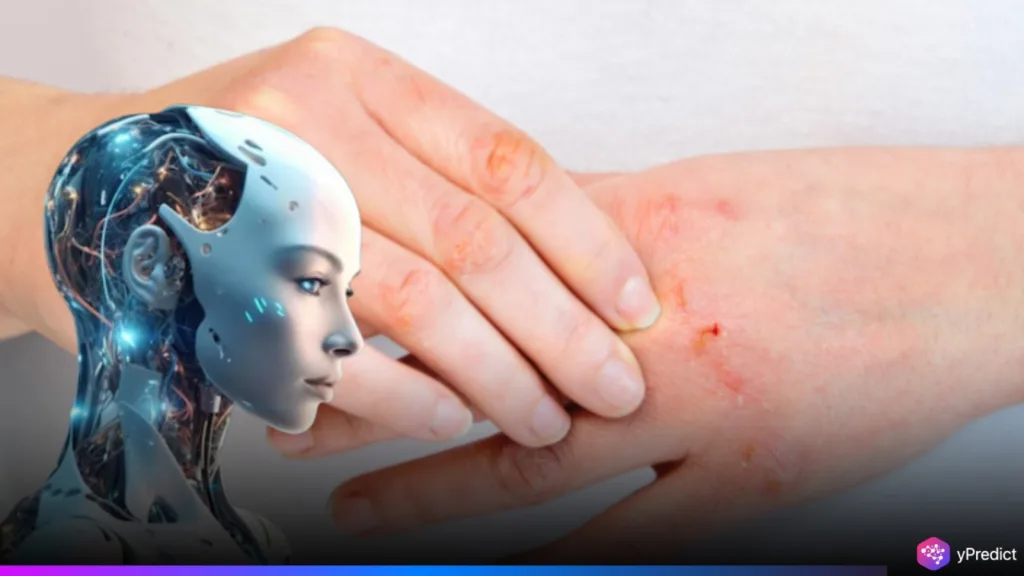
Eczema patients may soon manage their condition more efficiently thanks to a new Eczema AI developed by researchers at Keio University in Tokyo. The tool uses smartphone images to assess skin severity with clinical-level accuracy. The innovation marks a significant step in applying AI to Skin Analysis, with early tests showing high diagnostic accuracy. Published on May 19, 2025, in the journal Allergy, the study highlights how this technology could help patients with Atopic dermatitis track symptoms in real-time, using nothing more than their phone cameras.
AI Uses Smartphone Photos to Track Skin Flare-Ups
The Keio University research team trained the Eczema AI to analyze user-submitted images for signs of Atopic dermatitis. By examining the rash location, redness, swelling, and scratch marks, the AI can calculate how severe a flare-up is. All patients need to do is upload a photo taken with their smartphone. Many eczema sufferers struggle to judge their skin condition accurately, said Dr. Takeya Adachi, the study’s senior researcher.
Researchers used a large dataset from the Japanese eczema-tracking app Atopiyo, which includes more than 57,000 images submitted by over 28,000 users since 2018. These photos, along with user comments, gave the AI a rich source of data for training and testing. For instance, users of the app reported quicker identification of flare-ups and faster treatment decisions after regularly uploading daily photos.
Testing Shows AI Matches Expert Evaluations
In testing, the Skin Analysis AI identified 98% of body parts and correctly detected all eczema areas in the photos. Researchers found its assessments closely matched those of board-certified dermatologists and allergists, indicating that the AI performs with a high level of accuracy.
After training on 880 images linked to self-reported itch scores, researchers tested the AI’s accuracy using an additional 220 photos. Results showed that the AI’s severity ratings were consistent with clinical standards. The consistent output of the AI shows the capacity to reduce the gap between patient-reported signs and symptoms and what dermatologists clinically examine
Real-Time Feedback Could Improve Patient Outcomes
The level of severity could guide the patient when managing Atopic dermatitis through an Eczema AI rather than simply having the patient consider themselves without any type of visit or the need for patients’ self-reporting via face-to-face methods. This would allow a more informed and evidence-based approach to better management, resulting in earlier clinical intervention, fewer flare-ups, and more careful modifications of treatment.
“Conditions like eczema are complicated, and they are constantly changing,” said Dr. Adachi. With automated skin analysis in real-time, the opportunity for patients to act sooner and make informed decisions about their care exists for many skin conditions. This technology could also lessen the burden of dermatology services, allowing the common and simple conditions to be triaged, and the need for serious and more complicated cases to be prioritized.
Future Development Will Expand AI’s Reach
Researchers plan to enhance the Eczema AI further. Upcoming updates will focus on incorporating a broader range of skin types and age groups. They also aim to include features from additional clinical scoring systems to improve diagnostic depth. The research team believes this AI model lays the foundation for a new generation of digital dermatology tools. By scaling up and diversifying the system, they hope to make it globally accessible and relevant across diverse patient populations. This is just the beginning, the researchers wrote in their conclusion. Our work sets the stage for advanced, AI-driven Skin Analysis tools that support both clinical research and patient care. With more testing and wider data integration, this Eczema AI could soon become a global tool for real-time skin health management.






